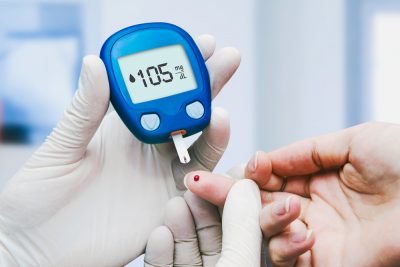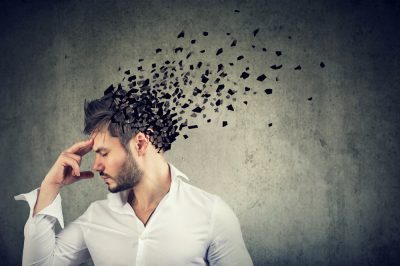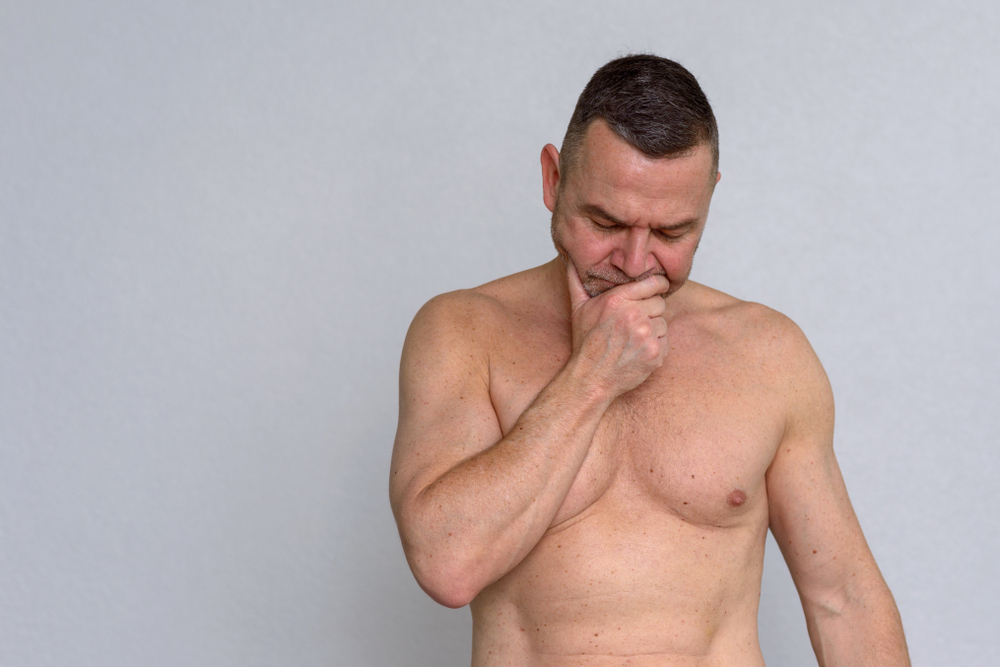The primary hormone in men that plays a vital role in sex-related activities is known as testosterone. Testosterone is an anabolic steroid that is naturally produced in both men and women.
Women produce more estrogen than testosterone while in men, testosterone is produced more. Testosterone has numerous functions it performs in the body. These include the development of the sex organs in men both inner and outer, the development of body and muscle mass, and increase in bone density, sex drive, and firm erections.
Testosterone begins to decrease naturally as time goes in men. They notice a decline in their level of testosterone at the age of thirty. There can be other factors that can influence the level of testosterone in your body.
What is Low Testosterone?
Some men begin to experience low testosterone levels as they get older; it is known as Testosterone Deficiency Syndrome (TD). Deficiency simply means that the body is unable to produce enough of a particular substance, while syndrome signifies a group of symptoms that refer to a health condition or disease.
This means that testosterone deficiency is the inability of the testes to produce the average amount of testosterone needed in a man’s body.
Why Testosterone Therapy?
Testosterone therapy is gravely needed for those with low testosterone levels. Testosterone therapy is perfect for the treatment of conditions you are born with, like Klinefelter syndrome. Testosterone therapy is also used when you lose or harm your testicles.
You need testosterone therapy is your testicles were removed as a result of cancer or other types of sickness. Most men who are experiencing lowered testosterone levels are advised to engage in testosterone replacement therapy.
Causes of Low Testosterone Levels
There are numerous causes of low testosterone levels in men. Some individuals are born with conditions that aid in low testosterone levels. These include:
- Klinefelter syndrome
- Noonan syndrome
- Ambiguous genitalia( this condition is as a result of when the sex organs are not looking the typical way)
In some other men, there can be various other causes of low testosterone levels like:
 Damages or injuries to the testes
Damages or injuries to the testes- Removal of the testes as a result of cancer infestation
- Infection of the testes
- Tumours
- Type 2 diabetes
- Radiation or chemotherapy used in the treatment of cancer
- A disease of the hypothalamus or pituitary gland leading to a deficiency in hormones.
- Autoimmune diseases (this is a condition whereby the body produces antibodies that work against it and attacks its cells.
If your testicles produce a lowered testosterone than normal, then your blood levels of testosterone are also likely to fall. Most men who experience testosterone deficiency have low testosterone levels that are closely linked to:
- Ageing
- Excess weight gain or obesity
- Use of a specific type of medications such as narcotic pain medications and antidepressants.
- Metabolic syndrome ( high blood sugar, high cholesterol levels, belly fat and high blood pressure).
Also, men with some specific type of illness suffer from low testosterone levels. These illnesses include:
- HIV (about thirty people out of a hundred HIV patients also have a decreased testosterone level.)
- AIDS (about fifty people out of hundred AIDS patients are also suffering from low testosterone level.
Diagnosis
There are symptoms that can be closely associated with low testosterone levels. Your total blood testosterone level is most important when testing for testosterone deficit. To make an accurate diagnosis, the doctor would take note of other specific symptoms and signs with your testosterone blood level inclusive. Your doctor would take into consideration particular factors.
Concerning your health history, he might ask these following questions:
- Your development process during puberty.
- History of head trauma
- Use of opiates
- A genetics disease associated with low testosterone levels.
- Inability to smell
- History of chemotherapy or radiation.
- History of heart attack or stroke.
- A history of unexplainable anemia
- Mumps after the puberty stage.
After asking a series of questions, your doctor would proceed to check for the following:
- BMI or waist circumference for excess weight gain.
- Hair patter, the amount available and its location
- Enlarged breasts(Gynecomastia)
- Prostate abnormalities and size.
- If the testicles are present and what size they are.
After conduction all the checkups, the doctor begins to order these blood tests:
- Total testosterone level: this test is conducted two different times. The analysis is performed on samples that were taken before noon. Because testosterone levels are lower in the late hours of the day. Whenever you are sick, your doctor waits for you to get better before carrying out a test for low testosterone on you. This is because if you are ill, your test results for low testosterone levels become irrelevant.
- Luteinizing hormone (LH): this is a test that is carried out basically for finding out the leading cause of low testosterone in your body. This hormone is responsible for the control of how testosterone is being made. Abnormal levels of testosterone mean that there is a problem with the hypothalamus and pituitary gland.
- Blood prolactin level: if you have a high prolactin level, there might be a repetition of a test to ensure that there is no error.
- Blood hemoglobin or Hgb: before carrying out this test, the doctor would search for other reasons that could result in low blood hemoglobin like disturbances in sleeping or sleep apnea, tobacco smoking and climate altitude.
There are various treatments for low testosterone levels. They include:
- Regular exercising: regular exercising and weight lifting have been shown to boost testosterone levels in men. High-interval intense training is also known for its numerous benefit when it comes to increasing low testosterone levels
- Eating right: this is a significant determinant in boosting the testosterone levels in a man. If you want to increase your testosterone levels, make sure you are eating a healthy diet. Do not overeat and do not eat too little because it negatively affects your testosterone level.
- Consumption of foods. There are various foods that contain zinc and vitamin D that aids in boosting the level of testosterone in men, foods like oysters, ginger, pomegranates, nuts, milk and other types of poultry are good for boosting your testosterone level.
Symptoms of low testosterone in men
As a man, if your testosterone levels go below the average level, you would begin to notice certain symptoms. A man is said to have low testosterone if his testosterone levels drop below 300 nanograms per deciliter.
So, if testosterone levels drop significantly, these are some of the symptoms a man would notice;
Lowered sex drive
Testosterone is often considered the main male sex hormone, and it is responsible for stimulating sex drive. It is a normal occurrence for sex drive to decrease in men as they get older. But a significant drop in testosterone levels could mean that the decrease comes a lot faster than it should.
Erectile problems
As well as stimulating sex drive, testosterone is also responsible for achieving an erection. This is because it has the ability to stimulate specific receptors in the brain to produce nitric oxide.
This naturally occurring molecule is needed for an erection to be achieved. If a man’s testosterone level drops drastically, he could be faced with a lot of erectile abnormalities.
Affected memory
 Naturally, as men get older, they start to experience a decline in their cognitive functions and testosterone levels. Due to this, a lot of healthcare professionals have linked a significant decrease in cognitive functions to low testosterone levels.
Naturally, as men get older, they start to experience a decline in their cognitive functions and testosterone levels. Due to this, a lot of healthcare professionals have linked a significant decrease in cognitive functions to low testosterone levels.
Recent research has also proven that taking testosterone supplements can be very effective in enhancing memory in men with low testosterone.
Smaller testicle size
Men who have low testosterone will inevitably have a smaller than average testicle size. This is because testosterone is essential and necessary for the body to develop the penis and testicles properly.
So, men with low testosterone levels tend to have smaller penis and testicles size than those with normal levels. However, it is not ideal for diagnosing low T with just this symptom as other factors could contribute to smaller testicle size.
Mood swings
Men who have low testosterone levels will most likely have frequent mood swings. In addition to affecting a lot of bodily functions, testosterone is also involved in regulating mood and mental capacity.
Studies have shown that men who have low testosterone levels tend to face depression, lack of focus, and irritability.
Decreased bone mass
Men with low testosterone levels are more likely to suffer from osteoporosis, which is known as the thinning of bone mass. It is a condition that is mostly linked to women, but low testosterone levels can trigger it in a man.
Testosterone is vital for healthy bones, so a man with low levels would have decreased bone mass and weaker bones.
Increased body fat
Men with low testosterone levels would begin to notice fat accumulation in their bodies. Particularly, they can develop gynecomastia, which is a condition where the breast tissue gets enlarged.
Conclusion
As a man gets older, he cannot stop the gradual decrease in his testosterone levels. So if your testosterone levels drop below normal and you start to experience the symptoms, it would be best if you avoid situations that could lower it more.
And also, try to boost your testosterone levels naturally by exercising regularly, taking natural testosterone supplements, and getting a good night’s rest.








COMMENTS